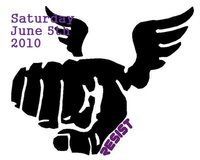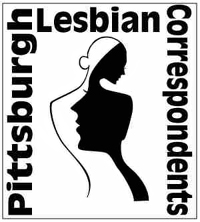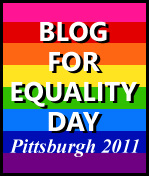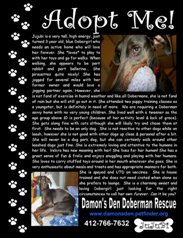
A little more on GetEqual and activism in PA
by
Sue
on Sun 30 May 2010 10:35 AM EDT
From Pam's House Blend, a guest post on the increasing presence of GetEqual in the LGBTQ advocacy/activist scene.
Distraught by recent delays, LGBT activists turn to civil disobedience to encourage the passage of the Employment Non Discrimination and repeal of "Don't Ask Don't Tell". Groups like GetEQUAL are making their voices known though direct actions like chaining themselves to fences, organizing sit-ins at congressional offices, and interrupting political speeches with calls from the audience.
Some believe these actions and the increasing visibility of the community's discontent played a role in the House vote on DADT.
Now they've turned attention to visibility around ENDA. Recently, GetEqual organizer Kip Williams disrupted a speech by President Obama to show that not everyone in the LGBTQ community is willing to patiently wait for leadership. The President was not amused and continues to cover his lack of leadership by deflecting attention to the "real" opponents. This redirection is not unfamiliar here in Southwestern PA, but that's a topic for another post.
Such direction action by individuals are not without precedent. From the Washington Post:
Nineteen-year-old Mark Segal became angry when he and a male friend were thrown out of a television dance program one August afternoon in 1972 after the program's host saw them dancing together. In retaliation, Segal barged into the studio of Philadelphia's WPVI a few days later during its evening newscast. Startled studio personnel wrestled him to the floor, tied his hands with a microphone cable and called the police.
Segal became a walking terror with his "zaps," as they were called. In 1973, his targets included "The Tonight Show Starring Johnny Carson" and "The Mike Douglas Show." He and a friend staged their last and most notorious zap when they posed as college students and obtained passes for the "CBS Evening News With Walter Cronkite." Midway through the broadcast on Dec. 11, 1973, as Cronkite began a story about Secretary of State Henry Kissinger, Segal darted in front of the camera with a sign reading "Gays Protest CBS Prejudice."
My favorite part:
Cronkite may have been more startled when Segal's attorney tried to serve him with a subpoena to testify. After CBS attorneys blocked repeated attempts to deliver the document, Segal's lawyer informed the network of a little-used New York law that made photocopies of a subpoena as valid as an original. He threatened to make copies available to the Hells Angels, with a reward for anyone who served the subpoena. Faced with the prospect of having Cronkite stalked by gay activists and bikers, CBS lawyers relented.
The tactics worked. Segal had a face to face with Cronkite to explain how CBS News was censoring the increasing gay activism. Cronkite paved the way for on-air coverage and Segal went on to found The Philadelphia Gay News.
Hmmm. The argument against direct action as a viable tactic has not only historically, but currently proven wrong. Segal has gone on to play a significant role increasing the visibility of the LGBTQ community in Philadelphia and across Pennsylvania.
Impact on the legislative process requires a multitude of tactics from letter writing to direct action. It is all about visibility. The emergence of groups like Get Equal demonstrates our potential to delve into the rich history of LGBTQ activism to tackle issues like DADT and ENDA.
I do need to point out that what we are missing in Pennsylvania is that activist/direct action middle link. I've written recently about the workings of the insider/Alist advocates who have embedded themselves into the system and work for change from within. I've also written about the tactics of groups like Bash Back who are at the other end of the spectrum. What's missing is the visibility of those in between -- those who are losing patience and seeking leadership to openly channel that frustration and disillusionment.
Telling us "I've got it" isn't enough. Vandalizing property out of anger with the system is also not working. I believe neither approach resonates with the average LGBTQ person without the in between, the actions that connect with our lives and our experiences.
In my case, I experience the tension of the in between most days. I don't trust those who say they've got it because the results of that approach are not changing lives or meeting the promises of the politicians making the decisions. I am dismayed when people believe the damage to property has any positive impact other than to announce they are angry.
Finding the leadership for the in between is the key.
The old joke is that Pittsburgh is 20 years behind the curve in most trends. Let's hope the slight forward momentum finds inspiration from the national scene to defy those odds.
sdf






